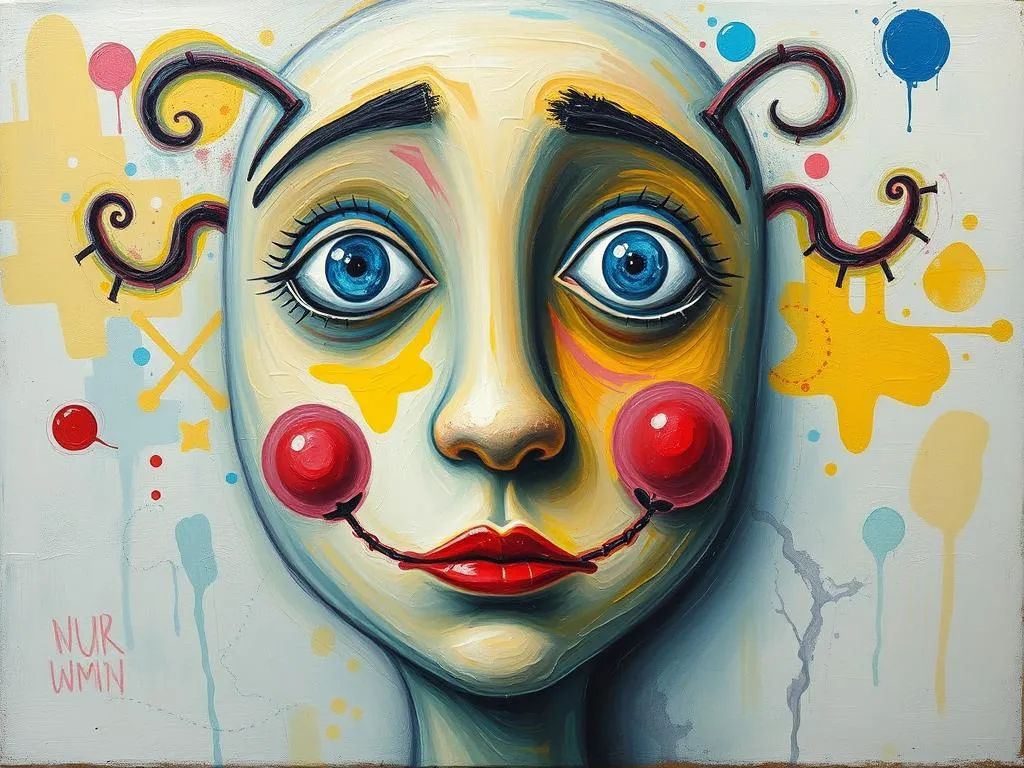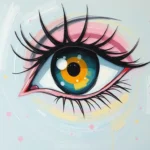
Dreams have long been a source of fascination and interpretation, serving as a window into our subconscious mind. Among the myriad of symbols that can appear in dreams, the face scar stands out as a particularly evocative image. Its presence can evoke a range of emotions and interpretations, making it a compelling subject for exploration. Understanding the symbolism of face scars in dreams not only helps illuminate personal fears and insecurities but also provides insight into how we perceive ourselves and the world around us.
Symbolism and Meaning
Face scars in dreams often signify deeper emotional wounds or unresolved issues. In many cultures, the face is viewed as a representation of one’s identity and how one presents themselves to the world. Thus, a scar on the face may symbolize a deep-seated fear of vulnerability or a sense of shame about one’s past. It can reflect feelings of inadequacy or a fear of being judged by others. When examining the symbolism of a face scar, it’s essential to consider both personal and universal interpretations.
From a personal perspective, the face scar may represent a specific trauma or painful experience that has left a lasting mark on the dreamer. This could range from an emotional wound, such as the end of a relationship, to a more tangible scar resulting from an accident. In this context, the dreamer may be grappling with feelings of guilt, anger, or sadness associated with these experiences, and the scar acts as a reminder of their impact.
On a broader level, a face scar can also symbolize the battle scars we all carry from life’s challenges. It may reflect the resilience that comes from overcoming adversity. In this light, the scar can serve as a badge of honor, signifying personal growth and the strength to confront one’s fears. However, the duality of this symbol is crucial; while it represents strength, it can also signify the ongoing struggle with self-acceptance and the desire to hide one’s flaws from the world.
Key Scenarios and Variations
The interpretation of a face scar can change significantly depending on the context of the dream. For instance, dreaming of a scar that is fresh and painful may indicate that the dreamer is currently grappling with a recent trauma. In contrast, a scar that has healed may suggest the dreamer has begun to come to terms with their experiences and is in a process of healing.
Another common scenario involves the dreamer encountering someone else with a visible face scar. This can represent the dreamer’s perception of that person’s vulnerabilities or struggles. Depending on the emotions felt during the interaction, it can symbolize empathy and understanding or perhaps judgment and fear. If the dreamer feels compelled to touch or examine the scar, this could indicate an urge to delve deeper into their own insecurities or the desire to connect meaningfully with others.
In some dreams, the scar may change or transform. For example, a dreamer might find that an old scar has become more prominent or that new scars have appeared. This can signify the resurfacing of old wounds or the emergence of new challenges. The evolving nature of the scar in the dream may reflect the dreamer’s ongoing journey of self-discovery and healing.
Additionally, the dreamer’s reaction to the scar can provide significant insight. If the dreamer feels embarrassed or ashamed of the scar, it may point to issues of self-esteem and body image. Conversely, if they feel proud of the scar, it can indicate acceptance of their past and a recognition of their resilience.
Real-Life Connections and Takeaways
Interpreting dreams featuring face scars encourages readers to engage in self-reflection and consider how these symbols relate to their waking lives. One practical approach is to journal about the emotions and situations associated with the dream. Reflecting on the personal meaning of the scar can help illuminate unresolved feelings or fears that may need attention.
For instance, if the dreamer identifies with the scar as a representation of a past trauma, it may be beneficial to explore ways to address and heal from that experience. This could involve talking to a trusted friend or seeking professional support, such as therapy or counseling. Understanding that scars—be they physical or emotional—are a part of the human experience can foster a sense of community and connection with others who share similar struggles.
Moreover, if the dreamer finds themselves feeling shame or embarrassment about their scar, they might consider how societal standards of beauty and acceptance influence their self-perception. Challenging these norms can pave the way for greater self-acceptance and compassion, allowing individuals to embrace their unique narratives without fear of judgment.
In conclusion, dreams featuring a face scar resonate deeply with themes of identity, vulnerability, and resilience. By delving into the symbolism and exploring personal connections, dreamers can gain valuable insights into their emotional landscape. Encouraging a mindset of self-compassion and acceptance can transform how we view our scars—both seen and unseen—allowing us to embrace our complex stories with grace and understanding. As you reflect on your dreams, consider how the face scar may serve as a powerful symbol of your journey toward healing and self-acceptance.







